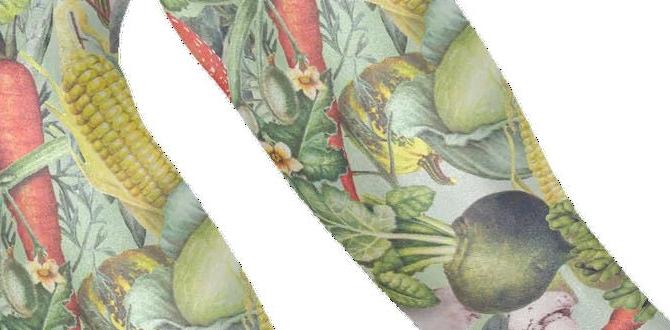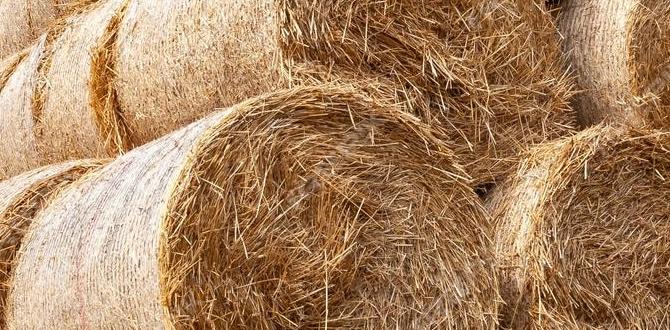Backyard chickens and a thriving garden go hand-in-hand! Learn essential tips for seamless care, turning potential challenges into a harmonious ecosystem that benefits both your flock and your vegetables. Discover how to protect plants, nourish soil, and manage your feathered friends for a bountiful harvest.
Ever dreamed of fresh eggs from your own backyard and vibrant, healthy vegetables growing alongside? Combining chickens and a garden sounds wonderfully idyllic, like something out of a storybook. But for many beginner gardeners, the thought of integrating these two can feel a little daunting. You might worry about your chickens nibbling your precious seedlings or scratching up your carefully prepared beds. It’s a common concern! But don’t let that stop you from creating this fantastic, sustainable duo. With the right approach, your chickens can become your garden’s best friends, and your garden can provide valuable resources for them. We’ll walk through simple, effective strategies to make backyard chicken and garden care a joyful and rewarding experience, ensuring both thrive.
The Wonderful Partnership: How Chickens and Gardens Benefit Each Other
Bringing chickens into your life can significantly enhance your garden’s health and productivity. It’s a beautiful, natural synergy waiting to happen. Let’s explore the amazing ways these two elements can work together.
Pest Patrol: Your Flock’s Natural Talents
One of the most significant benefits of having chickens in your garden is their natural inclination to hunt and eat insects. They are voracious predators of slugs, snails, grubs, grasshoppers, and many other garden pests that can wreak havoc on your crops. Imagine your chickens happily foraging, clearing out unwanted visitors before they even have a chance to damage your plants!
This natural pest control means you can significantly reduce or even eliminate the need for chemical pesticides. This is a win for your garden’s health, a win for your family’s health, and a huge win for the environment. It aligns perfectly with sustainable and organic gardening practices.
Fertilizer Factories: Nutrient-Rich Droppings
Chicken manure is a powerhouse of nutrients, particularly nitrogen, phosphorus, and potassium – essential elements for plant growth. When properly composted, this manure becomes an incredibly valuable fertilizer for your garden beds. It enriches the soil, improving its structure, water retention, and overall fertility.
However, it’s crucial to remember that fresh chicken manure is too potent and can burn plant roots. Composting is key to unlocking its full potential safely and effectively. We’ll discuss how to do this later.
Weed Warriors: Clearing the Way
Chickens love to scratch and peck, and this behavior can be incredibly useful for clearing garden areas. Before planting a new bed or after a harvest, you can allow your chickens to free-range in the area (under supervision, of course!). They will scratch up existing weeds, eat weed seeds, and till the top layer of soil, lightening the load for your next planting season.
Soil Improvement: Tilling and Aeration
As chickens scratch and forage, they naturally disturb and aerate the soil. This helps to break up compacted earth, allowing water and nutrients to penetrate more effectively. This natural tilling action can be a significant help, especially in gardens that tend to compact easily.
Essential Tips for Backyard Chicken and Garden Care
Successfully integrating chickens into your garden requires thoughtful planning and management. It’s about creating boundaries, providing care, and leveraging their natural behaviors to your advantage. Here are the essentials to get you started.
1. Fencing and Containment: Protecting Your Gardens
This is perhaps the most critical aspect of successful backyard chicken and garden care. Chickens, especially when free-ranging, can be surprisingly destructive to garden plants. They love to dig, scratch, and peck at tender shoots and ripe vegetables.
Strategies for Protection:
- Dedicated Chicken Run: The most common and effective solution is a secure chicken run. This is an enclosed outdoor area where your chickens will spend most of their time when not supervised. Ensure the run is sturdy and tall enough to prevent escape and keep predators out. Use hardware cloth (1/2-inch or 1/4-inch mesh) rather than chicken wire for ultimate protection against determined predators like raccoons and foxes.
- Garden Fencing: If you plan to allow chickens access to parts of your garden at specific times, you’ll need sturdy fencing around your garden beds. Lower fencing, approximately 2-3 feet high, can deter chickens from entering. Electric poultry netting is also an option for temporary or rotational grazing within garden areas.
- Mobile Coops and Pens: Portable chicken tractors or “chicken mowers” are excellent for allowing chickens to graze and till specific garden sections at a time, like after harvest or fallow periods. These can be moved regularly to prevent overgrazing and allow areas to recover.
- Predator-Proofing: Remember that predators aren’t just an issue for chickens; they might also be attracted to your garden. Ensure your garden fencing is also robust enough to deter common garden pests like rabbits or deer, depending on your location.
2. Rotational Grazing and Designated Foraging Times
Instead of letting chickens roam your garden haphazardly, implement a system of planned foraging. This allows you to get the benefits of their pest control and tilling while minimizing damage.
How it works:
- Post-Harvest Cleanup: After you’ve harvested your vegetables, allow chickens to enter the garden beds. They’ll consume leftover plant matter, weed seeds, and any remaining pests.
- Pre-Planting Preparation: Give chickens access to a new garden plot before you begin preparing it for planting. They’ll help clear weeds and till the soil.
- Supervised Garden Time: If you want your chickens to help in an active garden, only allow them in for short, supervised periods, perhaps in sections you’ve already harvested or that are planted with more robust, pest-resistant crops like established berry bushes.
- Observe and Adjust: Pay attention to how your chickens behave and how your plants respond. You might need to adjust the timing or duration of their access.
3. Composting Chicken Manure: Nature’s Black Gold
As mentioned, fresh chicken manure is potent. Composting transforms it into a safe, nutrient-rich soil amendment that your garden will love. This process also kills weed seeds and pathogens.
Simple Composting Method (Cold Composting):
- Collect Materials: Gather chicken manure and bedding (straw, wood shavings) from your coop. You’ll also need “brown” materials like dried leaves, shredded cardboard, or straw for balance.
- Layering: Create layers in a compost bin or pile. Aim for a ratio of about 1 part nitrogen-rich chicken manure (the “green”) to 2-3 parts carbon-rich brown materials.
- Moisture: Keep the pile consistently moist, like a wrung-out sponge.
- Turning (Optional but Recommended): While cold composting doesn’t require as much turning as hot composting, turning the pile occasionally will speed up the process and ensure even decomposition.
- Patience: Cold composting can take 6 months to a year or more. The compost is ready when it is dark, crumbly, and smells earthy.
For a faster compost ready in a few months, look into “hot composting” techniques, which involve maintaining higher temperatures within the pile. Resources from your local cooperative extension office, such as [Michigan State University Extension], offer detailed guidance on these methods.
4. Coop Management: Keeping it Clean and Healthy
A clean coop is vital for the health of your chickens and for managing odor and insect issues that could affect your garden. Regular cleaning prevents the buildup of ammonia and excessive moisture.
Key Practices:
- Deep Litter Method: This involves adding a thick layer of absorbent bedding (like pine shavings or straw) to the coop and allowing it to build up over time. As chickens scratch, turn, and add to the litter, the manure decomposes aerobically, generating heat and reducing odor. You’ll remove and compost the entire litter periodically (e.g., once or twice a year).
- Regular Spot Cleaning: Even with deep litter, you’ll want to spot-clean wet or soiled areas of the coop and nesting boxes weekly.
- Ventilation is Key: Ensure your coop has good ventilation without drafts. Proper airflow helps to keep the litter dry and reduces respiratory issues for your flock.
- Pest Control within the Coop: Regularly inspect for mites and lice, which can stress your chickens. Diatomaceous earth (food-grade) can be used in nesting boxes and around the coop to help control these parasites naturally.
5. Water Management: Crucial for Both
Chickens need constant access to fresh, clean water. Dehydration can lead to stress, reduced egg production, and poor health. Similarly, your garden needs consistent watering. Managing water efficiently benefits both.
Tips for Success:
- Elevated Waterers: Place chicken waterers on blocks or stands to keep the water cleaner and reduce the amount of bedding kicked into it.
- Automatic Waterers: Consider automatic waterers that connect to a hose or a larger reservoir water system. These significantly reduce daily maintenance and ensure a consistent supply.
- Watering Your Garden: Plan your garden watering to be most effective. Drip irrigation or soaker hoses deliver water directly to the plant roots, minimizing evaporation and water waste. Water early in the morning or late in the evening.
- Using Rainwater: Collecting rainwater in barrels is an eco-friendly way to water your garden and can even be used for your chickens (ensure it’s filtered if necessary).
6. Feed Considerations: Supplementing Their Diet
While chickens will happily forage for bugs and greens in your garden, they should still receive a balanced diet of commercial feed formulated for their age and needs. However, their garden foraging can supplement.
What they can safely eat from the garden:
- Leafy greens (lettuce, spinach, kale – in moderation)
- Certain herbs (parsley, mint, basil)
- Summer squash and zucchini
- Peas and beans (cooked or raw)
- Corn (on the cob or kernels)
- Berries
What to avoid:
- Avocado skins and pits
- Raw potatoes and potato leaves
- Green tomatoes (the plant itself is toxic)
- Citrus fruit peels and seeds
- Dried beans
Always research before feeding your chickens new items. For a comprehensive list of safe and toxic plants, consult resources like [The American Pastured Poultry Producers Association].
7. Building Healthy Soil Together
The combination of well-composted chicken manure, the natural tilling from their foraging, and the decomposition of garden waste creates a closed-loop system that dramatically improves soil health over time.
Synergistic Soil Building:
- Amend with Compost: Regularly add your composted chicken manure and garden compost to your beds.
- Cover Cropping: After the main growing season or in fallow beds where chickens have foraged, consider planting cover crops like clover or vetch. These protect the soil from erosion, suppress weeds, and add nutrients when tilled back into the earth.
- Minimize Tilling: As your soil health improves, you may find you need to till less, which preserves soil structure and beneficial microorganisms.
Common Challenges and Solutions
No gardening or homesteading endeavour is without its hiccups! Here are common issues when combining chickens and gardens and how to tackle them.
Challenge: Chickens are eating my plants!
Solution: This is where fencing and management are key. Ensure your garden beds are properly fenced, or only allow supervised access during off-season periods. For persistent plant-nibblers, you might need to temporarily confine them purely to their run during peak growing season.
Challenge: Too much chicken manure for compost
Solution: If you produce more manure than you can compost, consider sharing it with fellow gardeners (properly composted, of course!). Many gardeners are eager for high-quality, organic fertilizer. You could also invest in larger composting infrastructure or sell it locally.
Challenge: Odor from the coop
Solution: Odor is usually a sign of wet bedding and insufficient ventilation or carbon. Implement the deep litter method, ensure proper airflow, and add more absorbent carbon materials like straw or wood shavings. Regular spot cleaning also helps immensely.
Challenge: Attracting unwanted pests to the coop
Solution: Keep feed secured in rodent-proof containers. Clean up spilled feed promptly. A well-maintained, dry coop with good ventilation is less attractive to pests. Using food-grade diatomaceous earth can also deter crawling insects.
Quick Start Guide: Integrating Chickens and Garden
Ready to get started? Here’s a simplified plan:
- Plan Your Space: Designate a secure area for your chicken coop and run.
- Install Fencing: Fence off your garden beds to protect them.
- Start Composting: Set up a compost system for chicken manure.
- Introduce Chickens: Begin with a small flock and observe their behavior.
- Manage Foraging: Use rotational grazing or supervised garden time.
- Feed and Water: Provide daily fresh food and water for your flock.
Seasonal Backyard Chicken and Garden Care
Your approach to backyard chicken and garden care will shift with the seasons. Here’s a look at what to focus on throughout the year.
Spring: The Busy Planting and Hatching Season
Spring is a time of new growth for both your garden and potentially your flock if you’re adding chicks. Focus on preparing garden beds, protecting young seedlings, and ensuring your chickens have adequate space and nutrition.
- Garden: Start seeds indoors or direct sow outdoor crops. Install trellises and supports. Keep tender seedlings protected from frost and potential chicken forays.
- Chickens: If adding chicks, ensure they have a warm brooder. For adult hens, clean out the coop and add fresh bedding. Monitor nesting boxes for readiness.
- Integration: Allow chickens into cleared garden beds to help with final tilling and weed removal before planting begins in earnest.
Summer: Fruiting, Flowering, and Pest Patrol
Summer is when your garden should be producing, and your chickens are at their peak pest-eating prime. Keep an eye on heat, water, and potential threats.
- Garden: Water consistently, especially during dry spells. Harvest produce as it ripens. Watch for common summer pests.
- Chickens: Ensure constant access to cool, clean water. Provide shade in the run. Supplement their diet with garden scraps (safe ones!). Allow foraging in harvested areas to keep pest populations down.
- Integration: Use chickens for post-harvest cleanup of finished crops. Supervise any entry into active garden areas to prevent damage to ripening fruits.
Fall: Harvesting, Composting, and Preparation
Fall is about harvesting the last of your bounty, cleaning up the garden, and preparing for winter. This is a prime time for chickens to help clear fields.
- Garden: Harvest final crops. Clear away spent plants to prevent disease overwintering. Plant cover crops for soil health.
- Chickens: Continue with regular coop cleaning and bedding management. Ensure their coop is draft-free but well-ventilated for winter. Consider insulating the coop if you have very cold winters. Collect eggs consistently.
- Integration: Allow chickens free reign in harvested garden beds to consume fallen produce, weeds, and insects. This is an excellent time for them to “till” and prepare the soil for spring.
Winter: Rest, Planning, and Coop Comfort
Winter is a time for rest and planning. Your garden will be dormant, but your chickens still need daily care and a comfortable environment.
- Garden: Plan your garden layout for the next season. Order seeds. Review your successes and challenges from the past year.
- Chickens: Keep water from freezing – heated waterers are invaluable. Ensure the coop is secure and warm enough. Reduce daylight hours may lead to reduced egg laying, which is normal.
- Integration: Chickens will generally be confined to their coop and run during winter. Focus on maintaining their health and comfort.
Frequently Asked Questions (FAQs)
Q1: How far away should chickens be from my garden?
A1: Ideally, your chickens should be in their designated run, which can be adjacent to, but properly fenced off from, your garden. If allowing them into the garden for pest patrol or cleanup, ensure it’s only in designated, secured sections or under supervision, and always protect young plants




